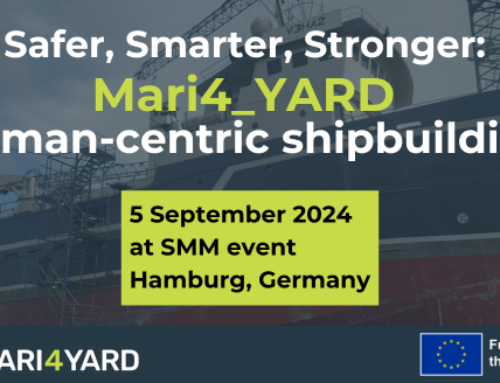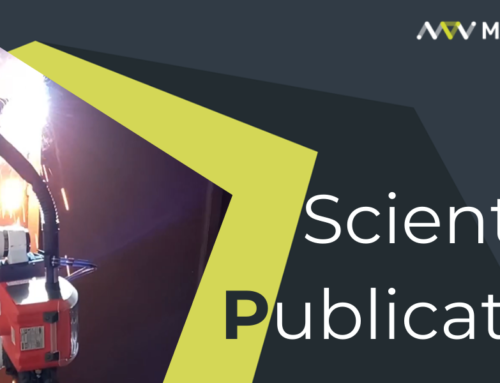SMEs are facing a difficult time because it is always harder to remain competitive. Mari4_YARD aims to contribute to the acceptance of new and intuitive human-robot collaborative solutions that allow for symbiotic cooperation between operators’ skills and dexterity into flexible and reconfigurable solutions in shared workspaces.
Mari4_YARD will foster the integration with digital solutions for 3D modelling (from 3D scans to 3D models), which eliminate the time of manual measuring, and with collaborative, highly reconfigurable, portable and affordable robotic systems, helpful for the human operators in the execution of labour-intensive and less ergonomic tasks in different processes of building, retrofitting and repairing of vessels.
The project will also develop handheld and portable AR/MR tools that support workers in versatile processes with the right information at the right time, which can be configured according to their expertise, needs, roles and preferences.
Then, answering the increasing need to reduce the fatigue and the physical stress in the execution of labour-intensive tasks, some AI-assisted exoskeletons will be developed: the partners are working at two novel exoskeletons, respectively for the upper-limb and back support. They will advance the state of the art and create wearable robots for movement assistance and will address the specific needs of shipyard industries, always giving importance to the specific workers’ knowledge and skills.
Finally, thanks to the integration of AutomationML as an emerging standard, the interconnection between planning and factory/workshop operation will be strengthened. This provides an efficient and lossless data exchange across design and production planning, standardized data structures in a unified format and process flexibility through easier interfacing between different tools and solutions.
SMEs are facing a difficult time because it is always harder to remain competitive. Mari4_YARD aims to contribute to the acceptance of new and intuitive human-robot collaborative solutions that allow for symbiotic cooperation between operators’ skills and dexterity into flexible and reconfigurable solutions in shared workspaces.
Mari4_YARD will foster the integration with digital solutions for 3D modelling (from 3D scans to 3D models), which eliminate the time of manual measuring, and with collaborative, highly reconfigurable, portable and affordable robotic systems, helpful for the human operators in the execution of labour-intensive and less ergonomic tasks in different processes of building, retrofitting and repairing of vessels.
The project will also develop handheld and portable AR/MR tools that support workers in versatile processes with the right information at the right time, which can be configured according to their expertise, needs, roles and preferences.
Then, answering the increasing need to reduce the fatigue and the physical stress in the execution of labour-intensive tasks, some AI-assisted exoskeletons will be developed: the partners are working at two novel exoskeletons, respectively for the upper-limb and back support. They will advance the state of the art and create wearable robots for movement assistance and will address the specific needs of shipyard industries, always giving importance to the specific workers’ knowledge and skills.
Finally, thanks to the integration of AutomationML as an emerging standard, the interconnection between planning and factory/workshop operation will be strengthened. This provides an efficient and lossless data exchange across design and production planning, standardized data structures in a unified format and process flexibility through easier interfacing between different tools and solutions.



